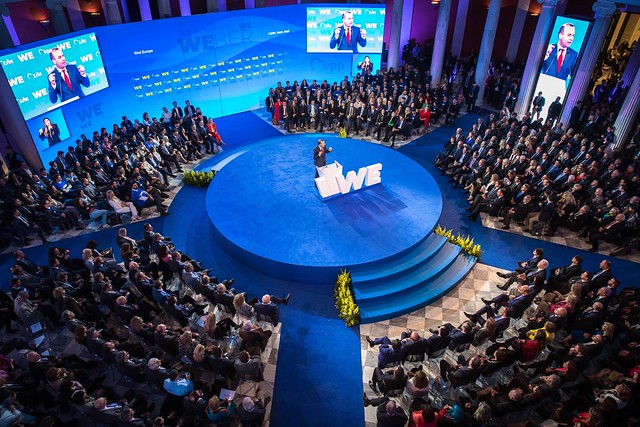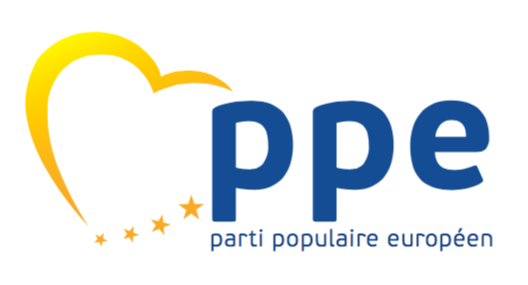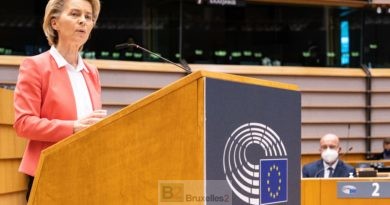The Christian Democrats in the European Parliament: a weakened leadership
(B2) The Christian Democrats of the European People's Party (EPP) still have strong backs, but their ankles are getting tired. The last elections confirm this

We continue our 'journey' in the different groups, after the Greens, the conservatives and the nationalists, here comes the turn of the Christian Democrats who are one of the strongest sources of inspiration in today's Europe. Any cough in this group therefore impacts Europe. The major event of this legislature is that the EPP should lose the absolute majority that it forms in coalition with the social democrats. Majority that allowed the two groups to organize a good part of European political life. The time when the party was rain and shine in Europe seems to be over. And internal divisions are sharpening.
A dominant group that crumbles
With 216 MEPs in the European Parliament in the outgoing legislature (2014-2019), the group of the European People's Party (EPP) should remain the largest in the next Parliament (2019-2024). But his power is waning. The first projection of the future European Parliament - for 705 deputies -, according to the voting intentions collected by pollsters in the various Member States in February, indicated a loss of at least thirty seats (read: European elections 2019: the EPP-S&D axis loses its absolute majority). Trend confirmed since.
An erosion of voice
This erosion of voice reflects the push to his right, with the rise of nationalists/sovereignists and other eurosceptics. But also the tugging towards the center. The party suffered attempts to poach the center which seeks to round its group to appear in the majority of government. Like what happened in France, with Emmanuel Macron's La République en Marche party which won votes on the right.
Notable food bowls in Spain and Italy
The defeat of the Spanish People's Party (PP) in the early legislative elections of April 28 (read: Spain. The PSOE emerges victorious without an absolute majority) surprised the band with its intensity. The PP is even close to moving to the second division, closely followed by the Catalan centrist party Ciudadanos. Joseph Daul, the president of the European People's Party, recognizes that this deserves analysis. But it may be too late.
In Italy, the defeat promises to be cruel. Forza Italia, Silvio Berlusconi's party continues to lose ground, relegated to fourth position far behind La Lega, the Five Star Movement and the Democratic Party (S&D). The latest polls credit her with less than 10% of the vote. That is almost 7 points less than in the Europeans of 2014.
A decline in several other countries
Germany remains a solid base, with the CDU-CSU (EPP) largely in the lead, but the promised score is below that obtained in 2014. It is the same case in France, where the good score to which Republicans should not delude themselves. The party did not reach the level of 2014. In several medium-sized countries, the affiliated parties lost one or two seats (Netherlands), or even risked losing everything (Czech Republic).
Minimal increases
The good news can be seen in Portugal where the PSD Social Democratic Party prevails over the Socialists. Also in Greece, where New Democracy would get almost a third of the votes, thus gaining votes, but this would represent only one more seat (or two at the most) compared to 2014. In Romania, the National Liberal Party , passed in 2014 from the ALDE group to that of the EPP, holds the rope in front of its traditional rival, the social democratic party currently in government. In Bulgaria, the GERB retains its third of the vote.
An unfavorable return from the British
The expected return of the British to the hemicycle, at least for a few weeks, will be unfavorable to the EPP. The European People's Party has in fact only a few British MPs, except those from the parties of Northern Ireland. This participation will first benefit the Conservatives and the Socialists.
The 'Orban' case
The Orban 'case' has been agitating, even tearing the EPP apart for several months, provoking real opposition between supporters of his banishment and those preferring the status quo. The very harsh criticisms made by the Hungarian Prime Minister Viktor Orban against the President of the European Commission, the Luxembourger Jean-Claude Juncker, or the head of the party list, the German Manfred Weber, have left their mark. Without daring to go so far as to exclude it, the EPP suspended Fidesz in March. A hatchet that seemed half buried, until Monday May 6, when Viktor Orban announced that he would not support Manfred Weber's candidacy as Spitzenkandidat.
Unity put to the test
The Hungarian leader is ostensibly approaching the Italian Matteo Salvini, leader of the Lega Nord and the next nationalist group, like the Poles of the PiS, who should preside over the destiny of the conservative group. These rapprochements, accompanied by its multiple provocations, are worrying. This internal war awakens other more muted oppositions, between the partisans of a hard line in matters of immigration in particular (Hungarians, Austrians, Croats...) and those partisans of a more classic line (Belgians, Italians, Greeks ). The cohesion of the EPP is today really threatened.
(Emmanuelle Stoesser)
Read also:


